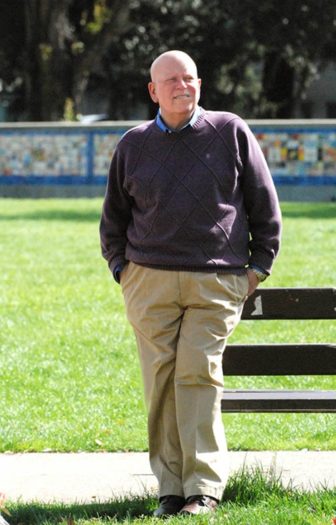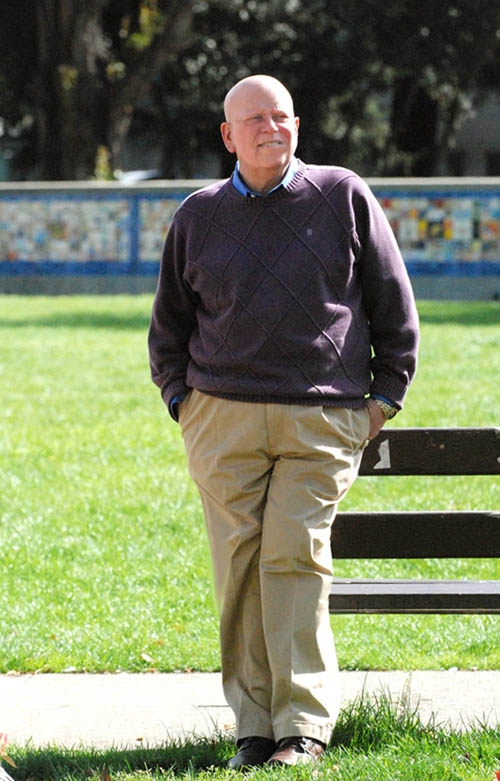 The national media has widely reported the story of Brendan Dassey, whose murder and sexual assault convictions were reversed by a federal court in Milwaukee on Aug. 12; he had served nearly nine years in prison. He was ordered released unless prosecutors wanted to file a new charge.
The national media has widely reported the story of Brendan Dassey, whose murder and sexual assault convictions were reversed by a federal court in Milwaukee on Aug. 12; he had served nearly nine years in prison. He was ordered released unless prosecutors wanted to file a new charge.
Dassey, who was 16 at the time of his arrest, was a central figure in a very popular Netflix documentary — “Making a Murderer.” The court found that the youth was mentally unfit and was coerced into confessing his involvement in the crime by false promises by investigators. The court held that his confession was involuntary under the Fifth and Fourteenth amendments. His lawyer had not challenged the propriety of the confession.
This was not an isolated incident. Davontae Sanford, a developmentally challenged 14-year-old, was also released after more than nine years in a Michigan prison for allegedly murdering four people in a drug house. His confession to police was made after two days of intense questioning without the presence of his guardians or an attorney. A professional hit man subsequently admitted to the murders. It appeared that Sanford’s interrogators ignored or did not reveal gross inconsistencies in the original confession.
Most Innocence Projects have focused on exonerations of adult defendants. There have been hundreds of these cases over the past decade. Many of these cases involved utilizing forensic evidence, especially DNA. Most of the exonerations are also due to inadequate legal representation, false eyewitness identifications or coerced confessions.
There are several Innocence Projects that look for cases in which the defendant was under age 18 at the time of the arrest. It is estimated that 38% of juveniles are falsely convicted due to false confessions, compared to 11% of adults convicted due to false confessions. Some research suggests that minors are more likely to tell interrogators what they want to hear or to brag about their gang exploits. The other concern is that youth are not equipped to adequately participate in their own defense and may be victims of inadequate counsel. There is some very limited research suggesting that eyewitness identifications may be harder with younger people.
These innocence cases often involve plea bargains or jury trials that occur in criminal courts, but they are the tip of the iceberg of excessive punishment for juveniles. Different from the issue of actual innocence are situations in which minors are prosecuted as adults either via statutory mandates, direct filing by prosecutors or transfer hearings in juvenile courts.
There are many youth advocates pursuing the issue of handling youth as if they were adults, such as student clinics at the University of Southern California and Loyola Marymount Law School. These advocates are relying on recent Supreme Court decisions in Miller v. Alabama as well as some state laws that provide for sufficient due process for minors who receive life with possibility of parole or very long sentences known as "virtual life." The Supreme Court very recently extended the scope of the Miller decision in Montgomery v. Alabama to all prisoners serving these harsh sentences who were arrested before age 18. Typically, remedies in Miller or Montgomery appeals seek petitions for resentencing or for reconsideration of parole decisions.
There are many organizations that are trying to reduce the number of youngsters who are tried in criminal as opposed to juvenile courts by challenging state laws and prosecutor discretion in this area. It is often alleged that minors do not receive adequate representation in the early stages of the judicial process that might limit these transfers. For example, juveniles may unknowingly waive their Miranda rights or be pressured by their guardians to tell the law enforcement people "the truth."
There have been many cases in which minors tell court social workers or probation staff about prior involvement with drugs or gangs that can trigger sentencing enhancements that lead to transfers to adult court and/or long mandatory sentences. Given the vulnerability of youngsters and their limited ability to actively participate in their defense, treating teens as if they were just small adults is very bad public policy. The underlying philosophy of juvenile court, with its focus on treatment and education, is far more humane than the punitive criminal sentencing system.
A very different approach to reducing the mistreatment of young people by prosecutors and the court system is that taken by the National Juvenile Defender Center, the Juvenile Law Center in Philadelphia and the Youth Law Center in San Francisco. These groups focus on establishing standards for the representation of juveniles in criminal or juvenile courts. The emphasis is on the fair application of federal and state constitutional protections covering search and seizure, the Miranda decision and the right to counsel, which is very uneven and underfunded in many juvenile courts. There also are a set of groups such as disability rights advocates and public counsel that look at the particular developmental and mental health challenges faced by young people and push for increased legal attention to mental competency issues for minors.
Even before formal legal proceedings there are difficult issues involving the preadjudication detention of juveniles, both in adult jails and in specialized youth centers. Since young people do not uniformly have a right to bail, the detention decision is critical for them.
Many youngsters are held for substantial amounts of time "for their own protection" or for very minor violations of the rules of their probation. Most of these young people will be ultimately released with charges dropped or a nonsecure residential placement. There was a tragic case in New York City in which adolescents were held on Rikers Island for years without any charges being filed.
The Annie E. Casey Foundation has been the leader in reducing inappropriate and excessive detention of young people. The reforms here usually involve increasing the legal representation of youth at the detention hearing and the routine consideration of nonincarceration alternatives. The conditions of juvenile detention are often very harsh, educational and social services are often nonexistent, and solitary confinement practices are common.
Concerns of fair consideration of juvenile innocence and due process occur in a variety of nonjudicial and administrative forums that may involve very significant adverse consequences for youth, such as school-based discipline and expulsions. Even some very well-intended nonjudicial programs such as diversion programs, peer juries or restorative justice programs have ill-defined protections for youth rights and parental interests.
These cases also bring in the concerns of child welfare or protection agencies that might result in removal of the child from the home to shelters or foster care placements. Another important issue involves the use of powerful psychotropic drugs in the foster care system and the protection of youth who may not want or need these medications. While some locales have sought to better regulate these potential abuses, much more needs to be done.
Other crucial areas for needed reforms involve the rules governing the sealing or expunging of juvenile records and the mélange of state laws on the confidentiality of juvenile court hearings. Large issues involve whether juvenile adjudications can count as prior offenses in the criminal courts, especially under Three Strikes laws, or the use of juvenile adjudications to bar employment, college admissions or access to college loans. Still another important topic is the handling of minors who are undocumented immigrants in deportation proceedings and policies of mandatory detention holds for these youth if they are arrested.
While there has been impressive progress made in the reduction of youth incarceration and more attention given to alternatives to confinement, these positive changes could be reversed if fears about juvenile crime are fueled by ambitious politicians and the media. The legal protections for youth have made some fitful steps forward, but the actualization of youth rights requires adequate access to high-quality legal assistance.
It is time for juvenile justice advocates and enlightened professionals to protect the basic legal rights of minors in a variety of settings. These problems are especially pronounced for young people of color and the poor. Issues of basic fairness and ingrained prejudice must be eliminated wherever they appear.
Barry Krisberg is a Visiting Fellow at the Institute for the Study of Societal Issues at the University of California, Berkeley.
